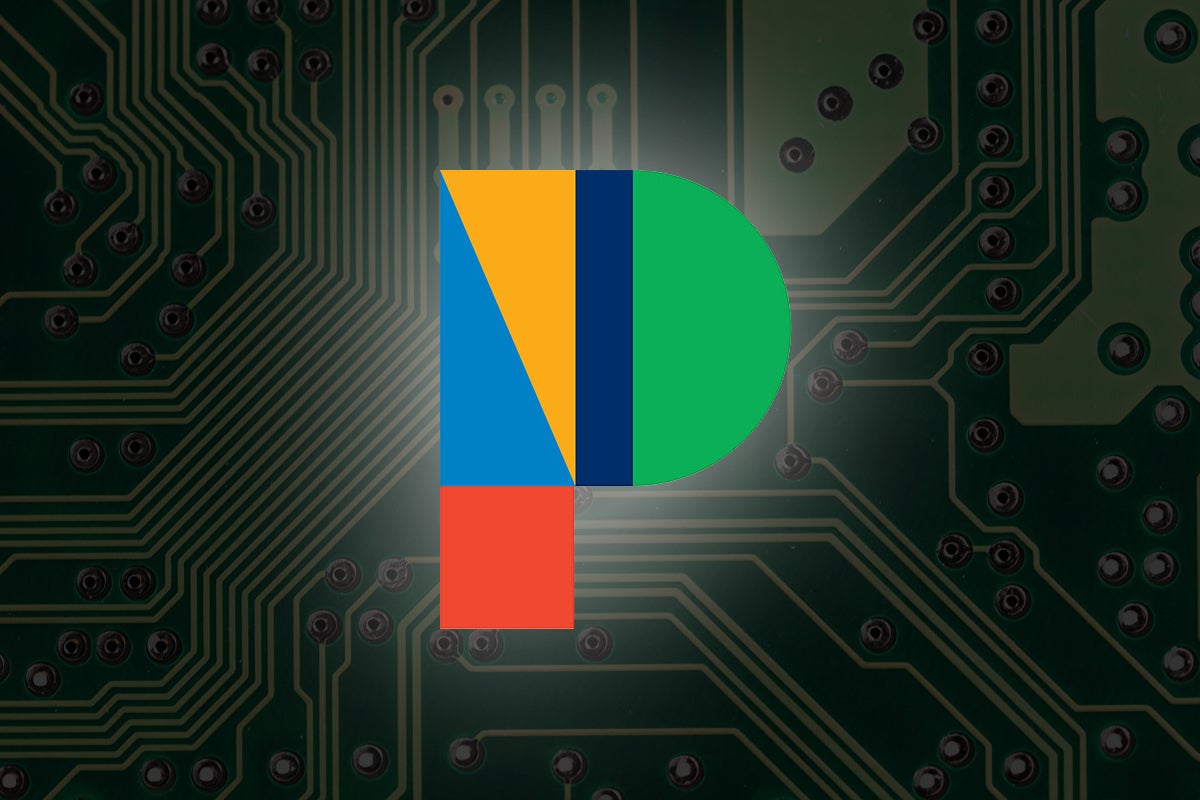It's tough to talk about chips without venturing deep into spec-infested geeky waters. Unless, that is, we're talking about the Cool Ranch variety of chip — in which case, I'll take two bags, please.
Salty snacks aside, though, chips are a sometimes-important, if highly technical, part of the smartphone picture. They're the hearts of our coddled and beloved mobile devices and the pieces of technology that let these modern wonders do all the incredible things they're able to do.
And while most normal folk certainly don't need to have words like "Snapdragon," "gigahertz," or "gelatinous gherkin" in their vocabularies (for obvious reasons on that last one, despite its lack of relevance to our current conversation), the notion of Google building its own custom chips to power its Pixel and possibly even Pixelbook products is something that could have a significant, practical impact on all of us — and something well worth understanding.
The subject of custom Pixel chips is top of mind right now for a couple of reasons: First, there's that whole magical and revolutionary Apple event announcing that company's plans to bring its own processors into its [insert another over-the-top adjective here] Macintosh computing appliances. But beyond that topical connection, we heard some cryptic hints just days ago from Google CEO Sundar Pichai that seemed to suggest Google's own homemade Pixel chips (not to be confused with homemade pickle chips) could be right around the corner.
As I wrote in my most recent Android Intelligence newsletter issue:
With the heavy caveat that we're totally reading between the lines here, what Pichai said was that Google was "doing some deeper investments in hardware," some of which take "two to three years to come together." And that in 2021, some of those "deeper investments" will "come into play." Now, remember when we learned a while back that Google was on the brink of having its own homemade processors ready for Pixel and Pixelbook devices and how that could come to pass as early as next year? Yuuuuup — sure seems to add up.
That report I alluded to at the end there came from the smart folks at Axios earlier this year. Back in April, they said Google was on track to have its hopefully-not-too-crunchy custom chips finished and ready to ship in a Pixel phone by sometime next year — and then in a Google-branded Chromebook at some point later down the road.
But the question still remains: Outside of tech-heads, industry goofuses, and the general super-geeks among us, who cares? What difference would it actually make to us, as mostly human person-mammals, if an upcoming Pixel were to have a Google-made processor instead of the more typical Qualcomm-made model?
Well, my goodness, am I glad you asked. Specifically, I'd say there are three broad areas where Google making its own Pixel chips could very much matter and have a meaningful impact on those of us who use the devices.
To start:
1. It'd give Google complete control over what, exactly, is included
From the moment Google first started selling its own self-made Pixel phones, we've talked about how the devices are more than the sum of their parts — how they represent a holistic, self-controlled vision of the way Google wants Android to be experienced.
That was a sharp contrast to the Google-branded Nexus phones that preceded the Pixels. Those devices were actually designed and created by other companies, usually relying on one of their own finished phone models as a base and then incorporating some of Google's requested tweaks and modifications.
And Goog almighty, did that make a monumental difference in the end result. As I put it back in 2016, when we were wrapping our moist noggins around that very first Pixel offering:
Google's Nexus phones always had compromises related to the fact that they were basically just customized versions of some other manufacturer's existing product. How many times over the years did we talk about a Nexus phone that was great — except for... [insert some hardware-related quality carried over from the manufacturer's base model — probably the camera]?
The Pixel, then, was Google's evolution from that setup — one in which it had only a tiny amount of control over the total experience — to one where it had almost-complete control over every aspect of the phone. But there was still one important asterisk: the chip.
Boring as they may seem, those processors inside our devices determine a lot about what sorts of functions the gadgets can and can't support. Processors are what provide foundational support for standards like 5G, for instance (meaningless as that specific example may be at the moment). They provide the framework for tons of different camera functions, biometric authentication systems, fast-charging capabilities, and even artificial-intelligence-related features to operate.
As it stands now, Google is dependent upon companies like Qualcomm for giving it that framework and determining much of what it can do with its Pixel products. And for a company that's laser-focused on areas like machine learning and an always-listening Assistant service, that creates some serious limitations with the types of experiences it's able to provide.
By creating its own custom chip for Pixel phones, Google could shatter those boundaries and gain the freedom to do exactly what it wants, how it wants, and when it wants. It'll complete the puzzle, in other words, and turn the Pixel into a fully (well, almost fully) self-controlled beast — a singular device that represents Google's vision for what a current Android phone oughta be. And as the company that also creates the operating system, Google's in a unique position to take advantage of that power and wield it in some potentially interesting ways.
That brings us to the second significant benefit a self-made Pixel chip could bring about and allow Google to pass down to us:
2. It'd provide Google total power to decide how long the processor — and thus the phone around it — is supported
Android upgrades have long been a sticking point of the platform, mostly due to the plain and simple fact that device-makers whose names don't rhyme with Schmoogle have no motivation to make timely and ongoing updates a priority.
Google alone has that incentive — but while it's long offered a level of upgrade timeliness and reliability no other manufacturer matches, it's still stuck at providing those updates for a mere three years. Compared to what a certain other high-profile operating-system-controlling company offers on its self-made devices, that doesn't seem like much.
We can talk all day about how Google could and should do more, but ultimately, part of the problem is that Google currently has to rely on the vendor that makes its phones' processors to continue supporting those chips and making sure every new Android version plays nicely with 'em. And the chip-makers, understandably, are much more interested in hawking their moderately improved new models every year than supporting their aging wares. So at a certain point, it becomes difficult for Google to get beyond that and keep providing updates for its phones.
Well, guess what? Building its own chips eliminates that problem. That's how Apple's able to keep sending out iOS updates to iPhones for so long — and, on a closer-to-home level, how a company like Nvidia is able to keep updating its Shield Android TV box five years and counting after that device's release.
That last example is especially pertinent here. As my pal Jerry Hildenbrand has pointed out over at Android Central, Nvidia isn't supporting its Shield device simply because it wants to put positive vibes out into the Android community (pleasant of a side effect as that may be). Nope — it's doing it because Nvidia is first and foremost "a gaming hardware company," as Jerry astutely observes, and the Shield is "a vehicle for NVIDIA's gaming platforms," including its GeForce Now cloud streaming service that creates an ongoing stream of revenue.
What is Google, first and foremost? Yep: a cloud services company — one whose services ultimately support its primary money-making business of online advertising. That's why, unlike every other Android phone-maker out there, Google is in a position to benefit from providing you an exceptional Android phone experience that only continues to get better over time. While Samsung or LG have the underlying goal of getting you to buy more hardware — since that's how they make most of their money — Google mostly wants you to use its software and services and be online as much as possible. And having its own chip in a Pixel would much better align with that goal.
See how this is all coming together? And there's one more promising piece to the puzzle...
3. It'd grant Google a newfound ability to cut back on costs — and potentially pass those savings on to us
All outward benefits aside, building your own components brings with it one very important advantage — at least, when the process is done properly and at a high enough scale: It saves you some much-needed moulah.
Think about it: Everyone in this race is there to make money (obviously, right?). So when Qualcomm sells Google the processors it needs for its Pixel phones, it's marking them up from the actual cost in order to turn a profit. That's basic economics for ya.
Well, when Google becomes the company creating all the chips, it no longer has to pay that markup. It "sells" the processors to itself, in a sense, at cost. And that means it can pack more value into a Pixel phone or Pixelbook and — at least in theory — pass some of those savings onto us, the mere mortals who fork over our hard-earned nickels to buy these shiny rectangles.
And with Google already focusing on a more value-minded model for its Pixel products, it's easy to see how that could fit right into the current trajectory.
All that's left to do now is wait and see when exactly Google's Pixel chip plan comes into place and how exactly it ends up looking — but it sure seems like some interesting possibilities are ahead.
And maybe, if we're lucky, they'll even come in a Cool Ranch variety.
Sign up for my weekly newsletter to get more practical tips, personal recommendations, and plain-English perspective on the news that matters.

[Android Intelligence videos at Computerworld]













































